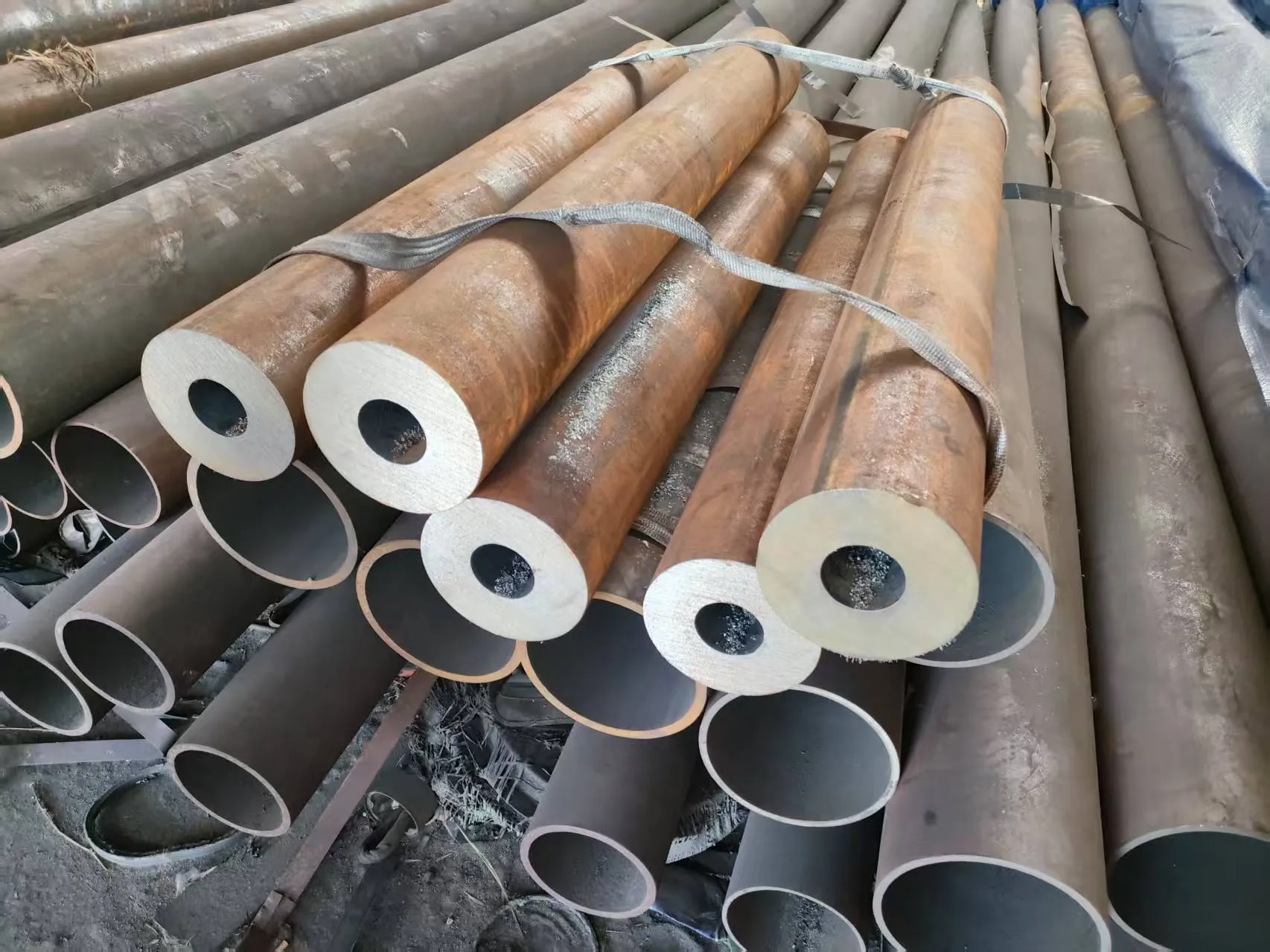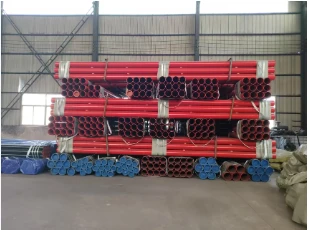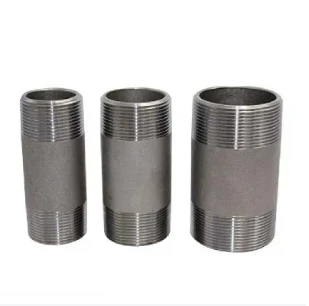Properties of Mechanical Carbon Steel Pipes
- 1.Material Composition:
- - Carbon steel pipes are primarily composed of iron and carbon. Carbon content typically ranges from 0.05% to 2.0%, affecting the material's hardness, strength, and ductility.
- 2. Strength and Toughness:
- - These pipes exhibit excellent tensile strength, allowing them to withstand high-pressure applications and impact forces.
- 3. Welding and Fabrication:
- - Carbon steel can be easily welded and fabricated, making it suitable for various mechanical constructions.
- 4. Cost-Effectiveness:
- - Compared to other materials, such as stainless steel, carbon steel is generally more affordable, making it a popular choice in many applications.
- 5. Versatile Grades:
- - Different grades of carbon steel (e.g., ASTM A106, A53, A333) are available, depending on specific mechanical properties, as well as temperature and pressure ratings.
- Applications of Mechanical Carbon Steel Pipes
- 1. Oil and Gas:
- - Used extensively in the transportation of crude oil and natural gas, including in pipelines, drilling rigs, and refinery applications.
- 2. Water Supply Systems:
- - Commonly utilized in municipal water supply and sewage systems due to their strength and ability to withstand pressure.
- 3. Industrial Process Piping:
- - Found in manufacturing and processing industries, such as chemical processing, where pipes transport various fluids.
- 4. HVAC Systems:
- - Used for conveying hot and cold water in heating, ventilation, and air conditioning systems.
- 5. Construction:
- - Employed in structural applications, such as scaffolding, and as support for other building structures.
- Advantages of Mechanical Carbon Steel Pipes
- 1. High Strength:
- - Capable of handling significant pressures and mechanical loads, making them suitable for a wide range of applications.
- 2. Cost-Effective:
- - Generally more affordable than many alternative materials, leading to lower overall project costs.
- 3. Good Heat Resistance:
- - Performs well under high-temperature conditions, especially in industrial applications.
- 4. Ease of Fabrication:
- - Simple to cut, weld, and join, allowing for flexible design and installation.
- 5. Availability:
- - Readily available in various grades, sizes, and schedules to suit different specifications.
- Considerations for Mechanical Carbon Steel Pipes
- 1. Corrosion Susceptibility:
- - Carbon steel is prone to corrosion, especially in humid or corrosive environments. Protective coatings or linings may be necessary for longevity.
- 2. Welding Standards:
- - Proper welding techniques and adherence to industry standards are critical to maintaining the integrity of joints and connections.
- 3. Thermal Expansion:
- - Carbon steel experiences thermal expansion; accounting for expansion joints or spacing in designs is essential.
- 4. Pressure Ratings:
- - Ensure that the selected pipe grade is appropriate for the pressure and temperature conditions of the application.
- 5. Inspection and Maintenance:
- - Regular inspections are necessary to identify wear and corrosion, allowing for timely maintenance and replacements.
- निष्कर्ष Mechanical carbon steel pipes are a fundamental component in many industrial and construction applications due to their strength, durability, and cost-effectiveness. Understanding the specific properties, advantages, and requirements of these pipes can help in selecting the right materials for various engineering needs. If you have more specific questions or require further information about mechanical carbon steel pipes in a particular context, feel free to ask!
अपना संदेश यहाँ लिखें और हमें भेजें















